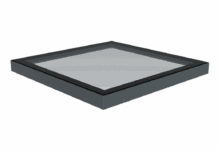Commenting on the Hackitt Review, Nigel Morrey, technical director at Etex Building Performance, said: “We welcome the Hackitt Review’s calls for more rigorous materials testing as well as the restriction of assessments in lieu of tests, rather than an outright ban. Test data which reflects real conditions should form the bedrock of all construction product development but as the review concludes, desktop studies can provide a viable route to compliance if used in a responsible and appropriate way by competent people.
“Crucially the new British Standard for evaluating test data must clearly set out the type of evidence required for assessments, using data that mirrors on-site conditions as closely as possible. It also needs to establish clear parameters for ensuring the competence of individuals performing these analyses. Both the government’s consultation on desktop studies and the Hackitt Review reference the importance of ‘competent staff working for an organisation that is accredited’ but in our experience this is not enough. Working for an accredited organisation does not guarantee capability of the individual.
“It is now critical that the assessment process proposed for cladding materials is also applied to other building products. There is a real danger that the industry has one set of rules for cladding systems and a different set for other materials which will only create confusion and an unworkable two-tier system. We need to apply this best practice across the board.”



